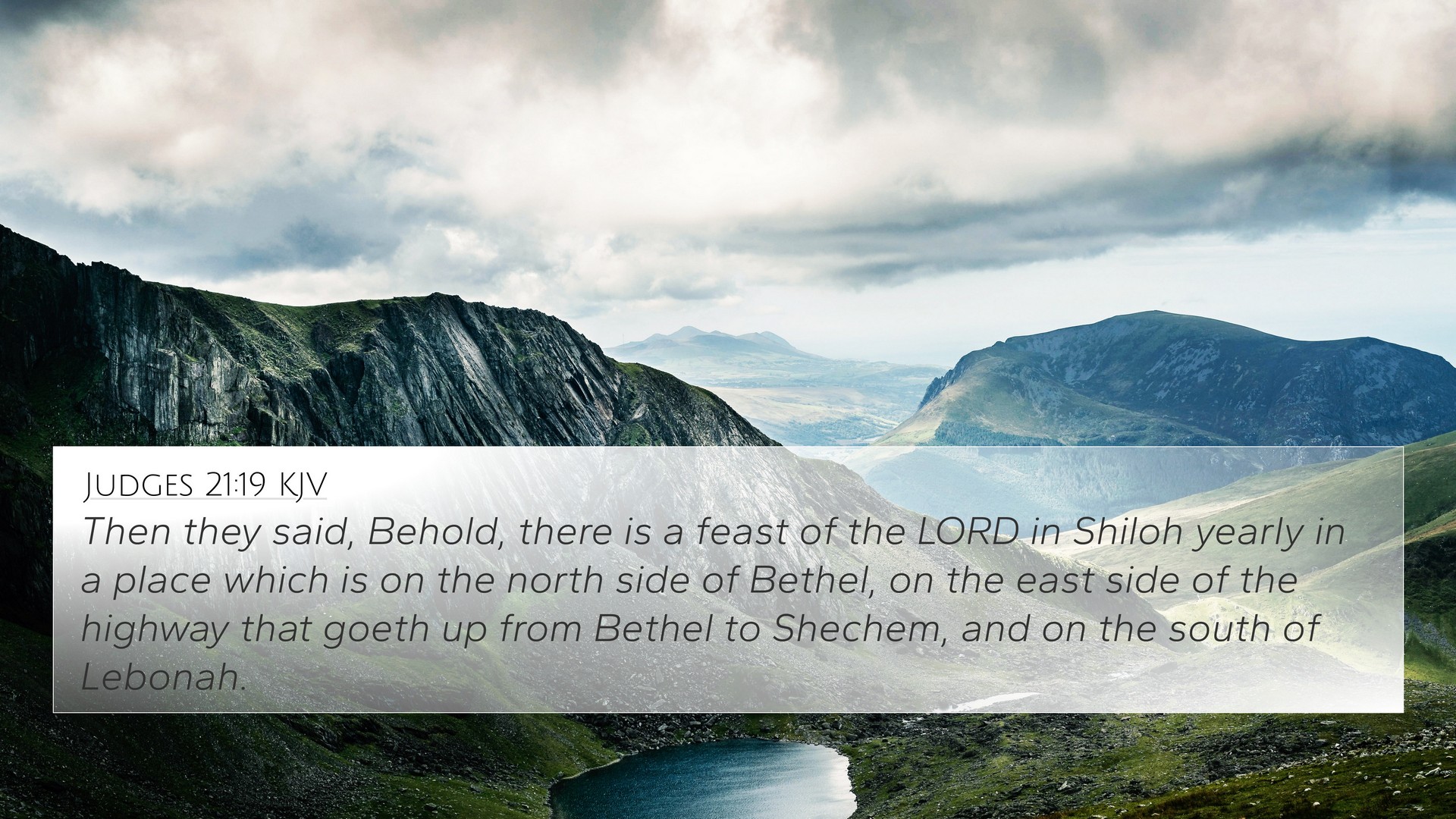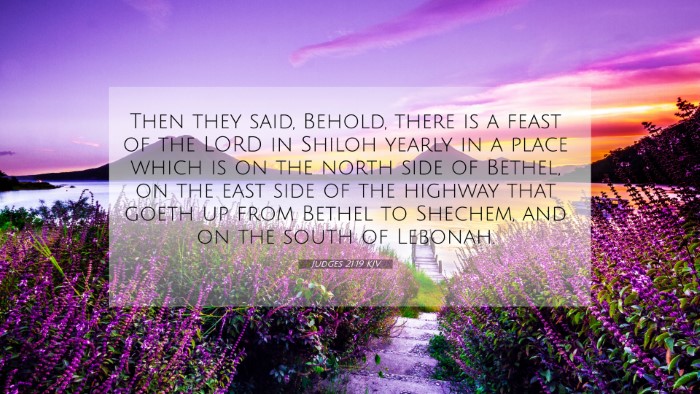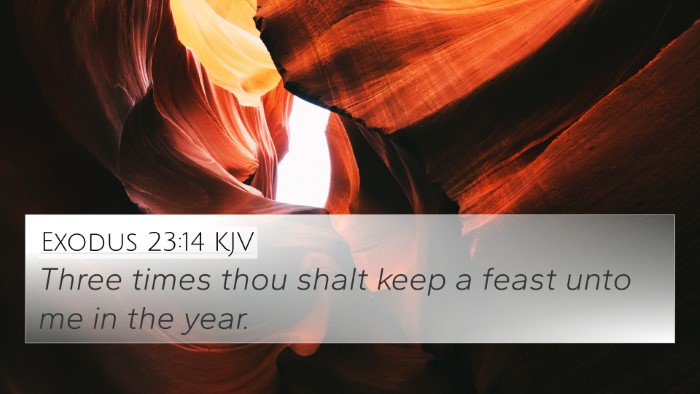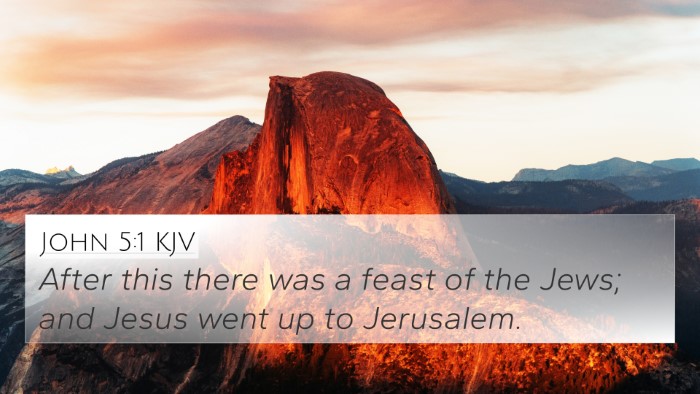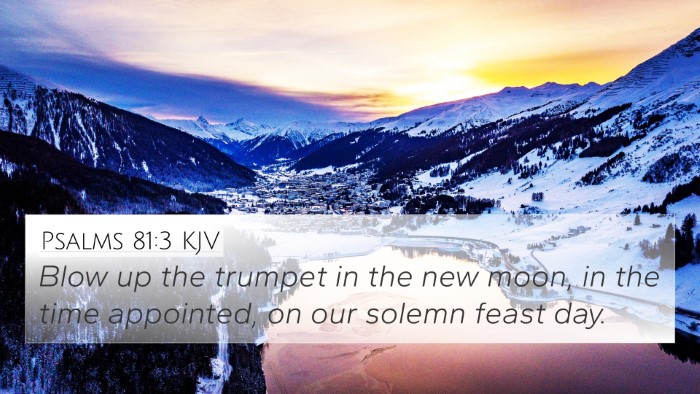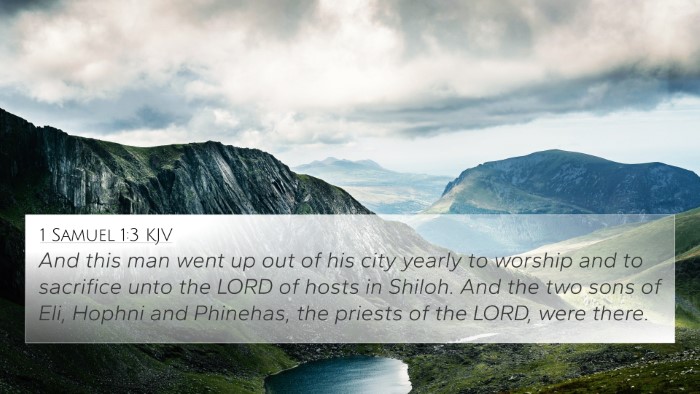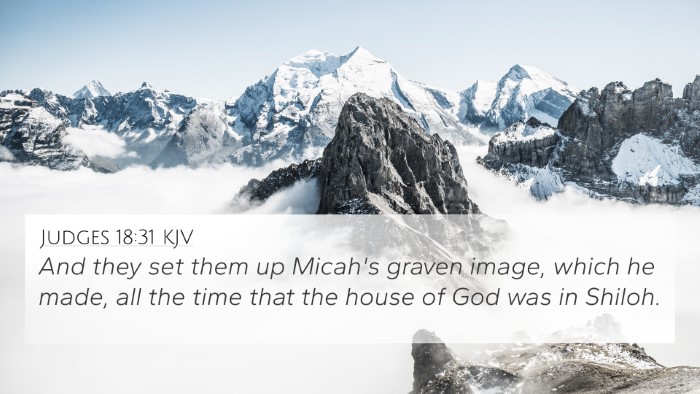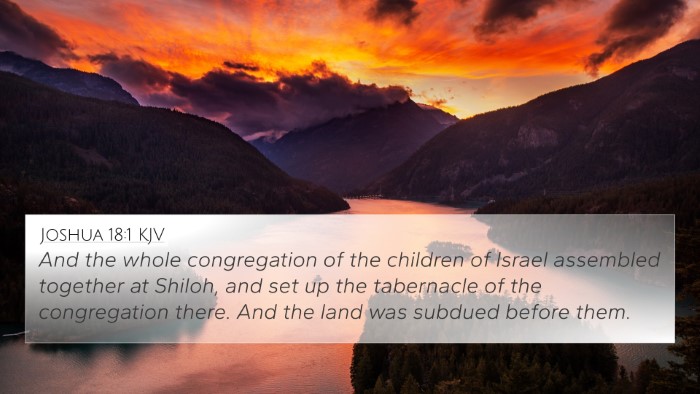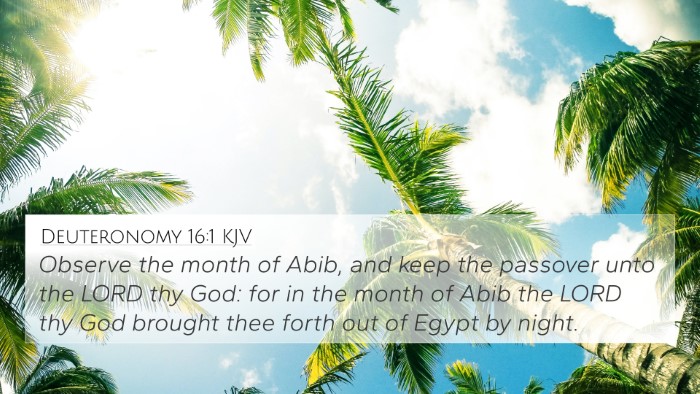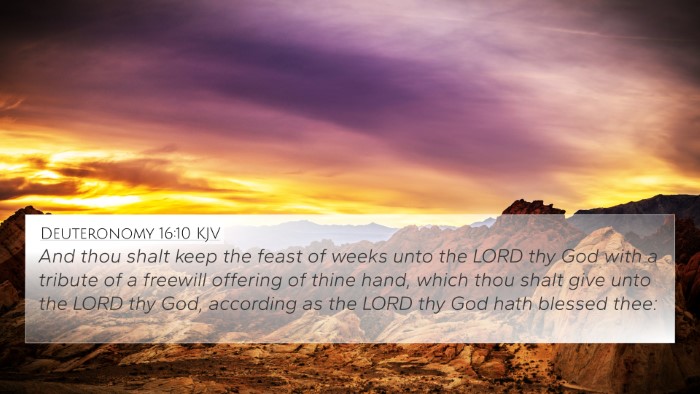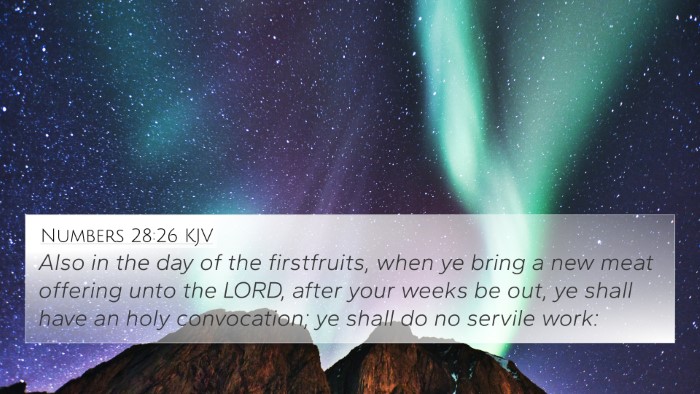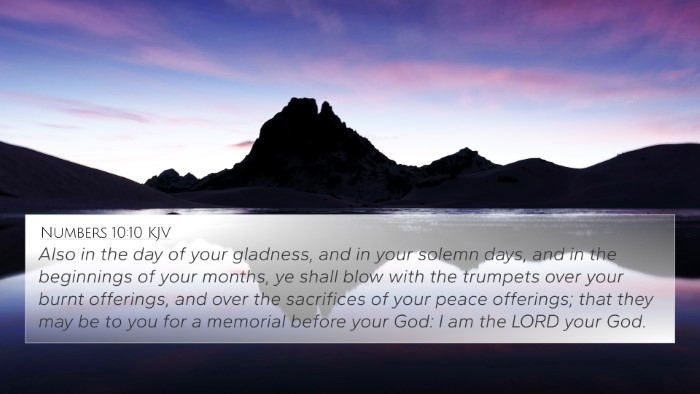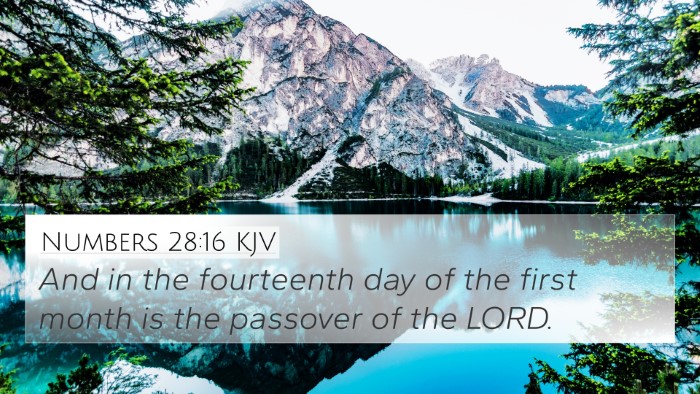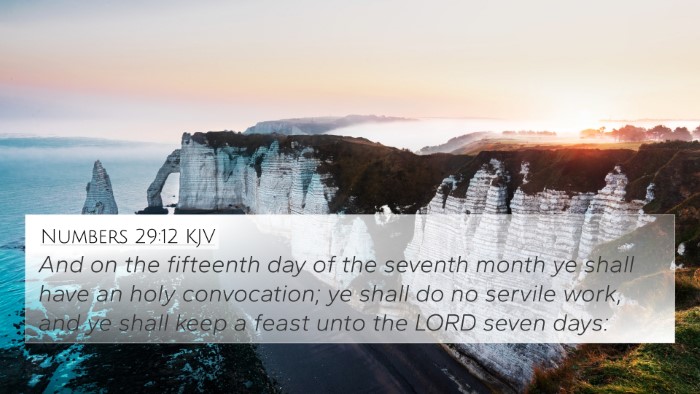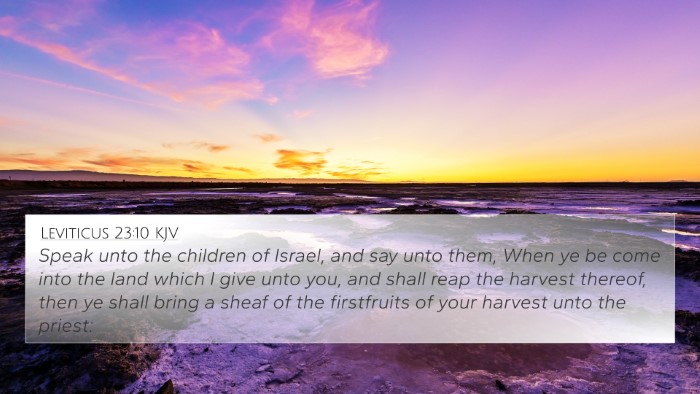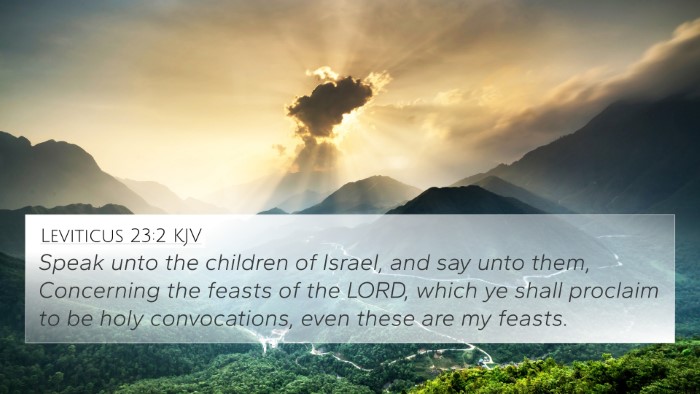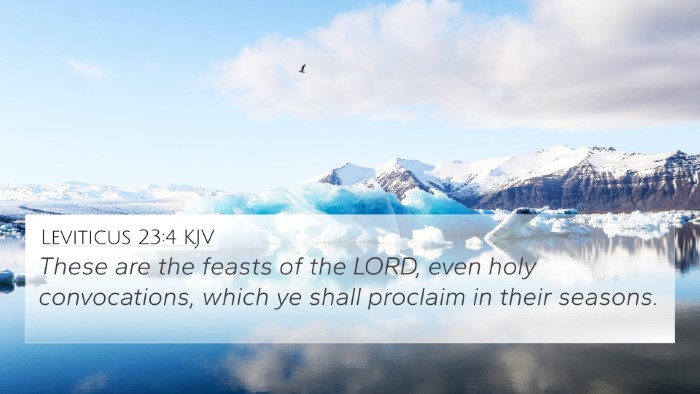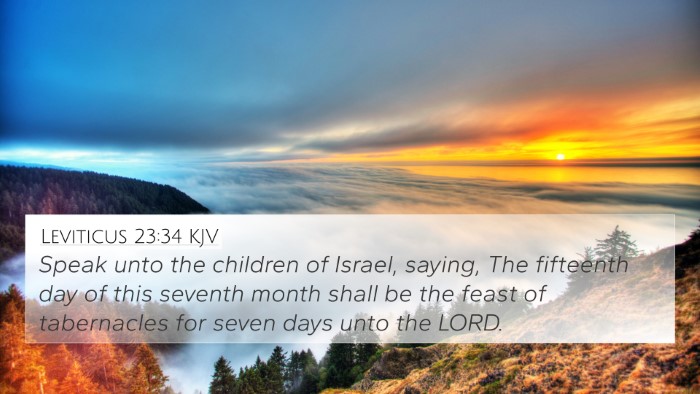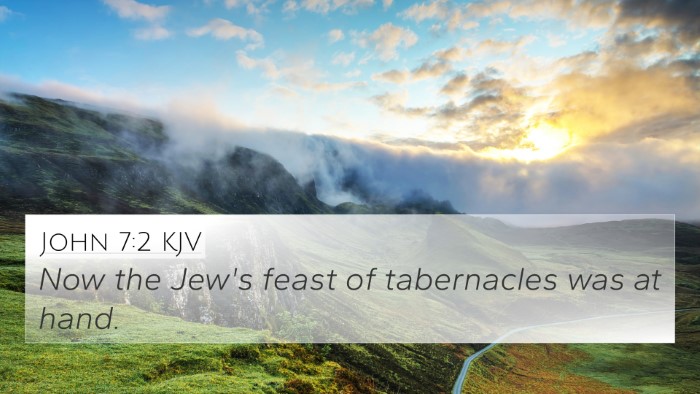Understanding Judges 21:19
Judges 21:19 states:
"Then they said, 'Behold, there is a feast of the Lord from year to year in Shiloh, which is on the north side of Bethel, on the east side of the highway that goes up from Bethel to Shechem, and south of Lebonah.'" (Judges 21:19, ESV)
This verse is part of the narrative concerning the aftermath of the conflict with the tribe of Benjamin. It reflects the efforts to provide wives for the surviving Benjamites in a way that is somewhat unusual and reflects the cultural practices of the time.
Summary of Commentary Insights
Matthew Henry Commentary
According to Matthew Henry, this verse indicates not only a geographical location but also serves as a reminder of the feasts and the proper worship of the Lord. Shiloh was significant as the religious center before the temple was built in Jerusalem, highlighting the importance of worship and community gatherings in Israelite culture.
Albert Barnes Commentary
Barnes points out that this verse reveals a method whereby the remaining men of Benjamin might take wives without breaking the oaths made by the Israelites. The feast introduces a provision for the inclusion of the Benjamites back into the community of Israel, thus preserving the tribe and maintaining unity.
Adam Clarke Commentary
Adam Clarke elaborates that this feast was a regulated occasion for the Israelites to gather, and it was during these gatherings that the women of Shiloh were sought for marriage. This shows the dynamic between cultural practices, religious observance, and the community’s commitment to restoring the tribe of Benjamin within Israel.
Cross-References for Judges 21:19
This verse connects with various other scripture passages, providing deeper meanings and insights:
- Deuteronomy 12:5-14: Discusses the centralization of worship in the place God chooses, which is important context for the significance of Shiloh.
- 1 Samuel 1:3: Introduces Shiloh as the place where Samuel was dedicated, emphasizing its role in Hebrew worship.
- Joshua 18:1: Mentions Shiloh as the place where the tabernacle was set up, authoritative for communal worship.
- Numbers 29:12-40: Details the festivals and offerings, linking to the significance of the feast mentioned in Judges 21:19.
- Hosea 5:13: Refers to Israel’s distress when they sought help from Assyria, which can be compared to the need for communal unity illustrated in this verse.
- Psalm 78:60-67: Speaks of God's judgment on Shiloh, bringing a historical lens to the site's importance and the Israelites' faithfulness.
- Acts 7:44: Refers to the tent of witness and highlights the significance of Shiloh, showing its impact on early Christian understanding of Israel’s history.
Insights on Thematic Connections
This verse can also lead to explorations of broader themes in the Bible, such as:
- Restoration and Redemption: The efforts to provide wives for the Benjamites show an act of redemption and reconciliation after civil conflict.
- Community and Worship: The regular feast demonstrates the centrality of community gatherings in the practice of faith.
- Covenant Relationships: The obligations and oaths made during this time relate to the broader themes of covenant within Israel.
Using Cross-References in Bible Study
Tools for cross-referencing can enhance understanding by laying out relationships between biblical texts. Here are some tips:
- Utilize a Bible Concordance: This resource can help you find verses and their related themes effectively.
- Engage in Comparative Bible Verse Analysis: Analyze similarities and themes between the Old and New Testaments for comprehensive understanding.
- Practice Cross-Referencing Methods: Incorporate various references in your study of scripture to uncover deeper insights.
Conclusion
Judges 21:19 reflects critical themes of restoration, community, and worship in Israel's history. The connections made through scriptural cross-referencing not only enhance understanding but also enrich the application of these texts in today’s context.
